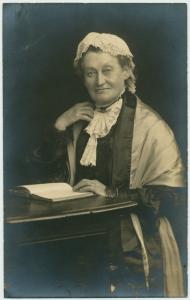Sadly (for the paralympic swimmer), they share the same name. Luckily, they do not share the same outlook on life for those living with a disability.
 As the Paralympics begin and the British media tries to ‘rally the troops’ for what feels like an afterthought, it is timely and appropriate that we consider the incredible hypocrisy which exists in our society and which is reflected and magnified in the media regarding abortion and those who live with disabilities.
As the Paralympics begin and the British media tries to ‘rally the troops’ for what feels like an afterthought, it is timely and appropriate that we consider the incredible hypocrisy which exists in our society and which is reflected and magnified in the media regarding abortion and those who live with disabilities.
On the 26th of August, an article praising the Paralympic swimmer Ellie Simmonds was published in the Sunday Telegraph. Simmonds was rightly commended for her fantastic achievement at Beijing 2008 (Simmonds became, at the age of 13, the youngest ever athlete to win a gold medal at a Paralympic Games). She also received an MBE in 2009 and was, again, the youngest person to be honoured with this award. Simmonds does not focus on her disability (she was born with achondroplasia - a form of short-limbed dwarfism) - “I’m just small”.
It is difficult to believe that the praise of the Paralympic athletes from some quarters is, however, sincere. How can we possibly take seriously, for example, the adverts made by the televisual hosts of the games, Channel 4? It feels insincere when we proclaim that Paralympic athletes are ‘superhuman’ and in the same breath declare that abortion for disability is a ‘necessary evil’. Had Ellie Simmonds’ parents brought an end to her life while she was still a vulnerable and tiny human being in the womb, would anyone have protested against the execution of her mother’s ‘right to choose’? Perhaps our pro-abortion critics would answer that the essential difference is that they themselves did not protest - that Simmonds’ parents ‘made their choice’. One might well ask: who gave us the power to decide between life and death for any human being, to deprive them of their chance to live their life, and in Simmonds’ case, even to reach the heights of a gold medal at the Paralympic games? Even if Ellie Simmonds had never set foot in a swimming pool, even if she had never left hospital, her life is, and always has been from the moment of her conception, her own and worthy of being lived.
 In a 2001 article published by Spiked Online, Ann Furedi, current CEO of Bpas, and Dr. Ellie Lee, lecturer at the University of Kent, wrote that when a woman aborts her disabled baby, “[s]he is making a statement about herself; what she feels she can cope with and what she wants” and not a statement about the worth of people with disabilities in general. Further on in the same article, the authors write that when a mother decides to abort her disabled child “It simply implies that she does not wish to be a mother to one” (note the term “one”). Furedi and Lee are clearly at ease using such dehumanizing language in relation to unborn children with disabilities (a few years back Lee went further and openly endorsed infanticide on the BBC’s Moral Maze. In the minds of Furedi and Lee, “Issues relating to disability rights are completely different to those relating to abortion”.
In a 2001 article published by Spiked Online, Ann Furedi, current CEO of Bpas, and Dr. Ellie Lee, lecturer at the University of Kent, wrote that when a woman aborts her disabled baby, “[s]he is making a statement about herself; what she feels she can cope with and what she wants” and not a statement about the worth of people with disabilities in general. Further on in the same article, the authors write that when a mother decides to abort her disabled child “It simply implies that she does not wish to be a mother to one” (note the term “one”). Furedi and Lee are clearly at ease using such dehumanizing language in relation to unborn children with disabilities (a few years back Lee went further and openly endorsed infanticide on the BBC’s Moral Maze. In the minds of Furedi and Lee, “Issues relating to disability rights are completely different to those relating to abortion”.
In a 2003 article on abortion and disability by Dr. Lee, published by Pro-choice Forum, she writes that abortion legislation in the UK is too prohibitive. She wants to see it liberalized, including when it comes to aborting babies with a disability:
“the logical consequence of doing so is to draw the conclusion that, to put it bluntly, choice is choice. I know from my experience of making this point that some people - those who are pro-life and some of those with disabilities - get very upset about it. But it is hard to see how this issue can be avoided if we are to have an approach to abortion that is fair, coherent and moral.”
These are the sorts of pernicious ideas that people with disabilities and their supporters have to stave off. For Lee, a more liberalised abortion law is going to make the world more moral and fair. It would be difficult to think of a better example of inverting the moral order, calling good bad and bad good. For the likes of Furedi and Lee, life will be better for the mother, and for society, when the ‘unwanted’ child with a disability is killed. Yet, comically, Furedi and Lee try to deny that they favour eugenics. Less comic are the generous public funds that go toward funding the likes of these two, while the State sentimentally celebrates ‘the disabled’.
Of course if ‘choice’ justifies of itself, why do so many modern feminists protest against the abortions which target girls? Putting aside the contradiction in their attitude (how can aborting a girl because she is a girl be wrong when abortion is, they say, a woman’s right and a legitimate practice?), they are recognising that sex-selection abortion reflects the idea, prevalent in communities where sex-selection abortion is popular, that girls are not as ‘good’ as boys. They recognise that as long as girls are targeted in the womb, they will never attain equal status in society when they are born. In the same way, we cannot abort our disabled unborn children and then expect respect, love and support for those children who do ‘slip through the net’.
A few months ago, a very telling article was published in the Guardian which chastised the government for cracking down on abortion clinics which carry out abortions on unborn children based on their sex, while a report had simultaneously been published which highlighted the lack of support for disabled children available today (long waits for wheelchairs, a lack of communication with the family about care for their disabled child etc).
The journalist, a supporter of abortion, failed to see the contradiction between her two positions. Of course disabled children are at the bottom of the pile in the UK, of course they are neglected, of course they go without! Disabled children are the lowest of the low when it comes to abortion. We know that it is almost taken for granted that a woman will abort her unborn baby if he or she has Down’s Syndrome, so why should we expect these children to be provided for when they are born? Society needs to sit up and take notice of the horrible injustice which is being perpetrated against all unborn children who are aborted and most obviously against those who are disabled. The Paralympics mean nothing, and are grossly hypocritical, if we refuse to protect (or, indeed, demand the destruction of) disabled members of our society in their hour of need: in the womb.











